So for instance, if there's a development proposed for the area we want to be heard about that. If some sort of action is to be taken which might damage the local environment, we want to be heard. But then if the road is in poor condition, we'll talk to the government about getting it better maintained. Those sorts of things.
Increasingly, it seems to me we're getting involved in whole-of-island environmental issues. We're very much a partner with the Bruny Island Environment Network (BIEN). They're very active and they have a really interesting and broad agenda, but we like to join with them in various things. There's a lot of communication happening there and I hope it increases.
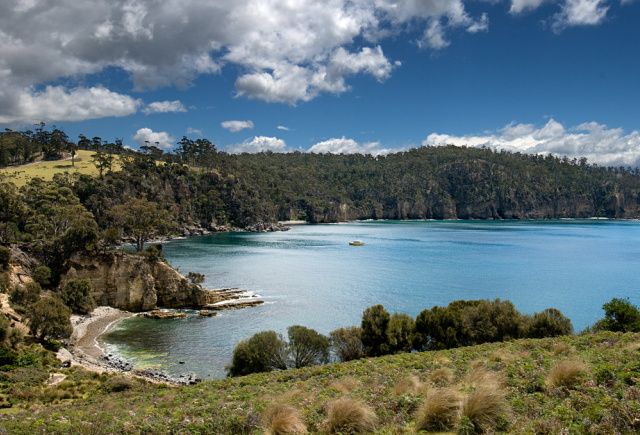
We also keep in communication with the Bruny Island Community Association, which has less of an environmental focus than those two other groups.
We have a very large membership now, over 100 members. That's great for an area that isn't very well populated. The group gets quite a lot done. There's also Landcare group, which is now being built up and is going to be quite active.
It's an extraordinary community. There are so many really talented people who either live here or have a shack here. I don't know quite why it is, but it's people from all from all walks of life.
We even have a resident last time I heard, who is Vice-Chair of the International Whaling Commission. They live on North Bruny. We have a person who has headed up the state library service, a person who has been a major entrepreneur in town all sorts of things like that. A lot of skills come to bear on what we do. There are a lot of small projects, but I think the main thrust of what the group wants to do is protect the island.
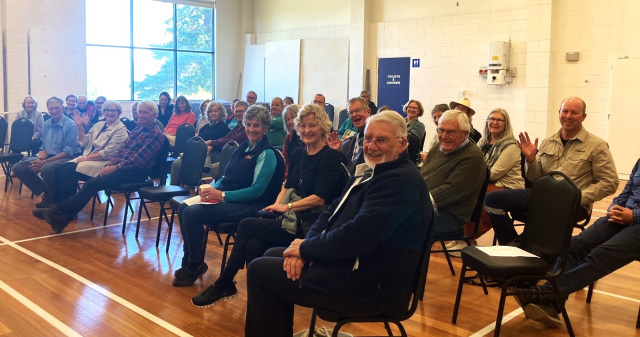
We're quite worried about the tourist numbers, the short-term visitation and the pressure that puts on the island. We'll want to have voice with that sort of thing. I think we'll increasingly work on biodiversity issues, but particularly in partnership with the other groups. And the local Landcare issues as well, all at the same time as trying to make sure that the infrastructure around us is working properly. I think those are going to be the main things.
For instance, with our farm, we are temporary dwellers here in the scheme of things, but we have an obligation to try and make sure that when we leave here, it's in good shape and it's better than it was when we arrived. I think most people here would feel that about their bit of the island.
Most of it happens behind the scenes, and people don't shout out their accomplishments very much. But the high levels of tourism wouldn't be achievable without people here, who consistently provide services or even just make sure that the place isn't a mess. I think it is really important that people have a sense of place, a sense of being where they are and having a responsibility for it for the long-term.
A large part of North Bruny is only in a small number of hands. Murrayfield Station, the property which is owned by the weetapoona Aboriginal Corporation, must occupy something like two thirds of North Bruny. So that's one area that's well looked after.
There are a couple of other larger properties, all in good shape. Then, there's a lot of smaller holdings where people are looking after their own small patch as well as contributing to the local community.
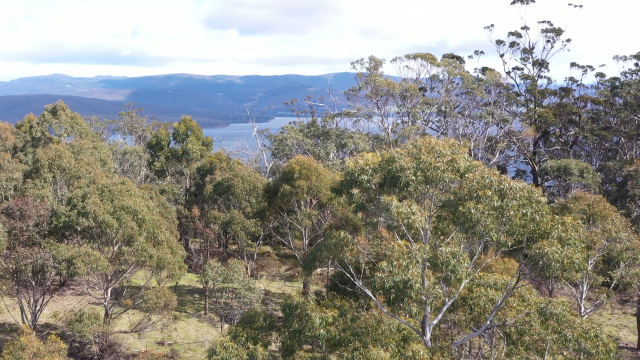
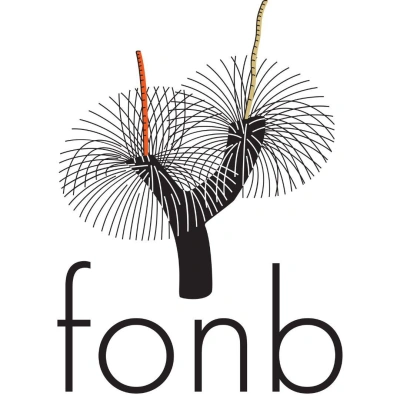
Friends of North Bruny
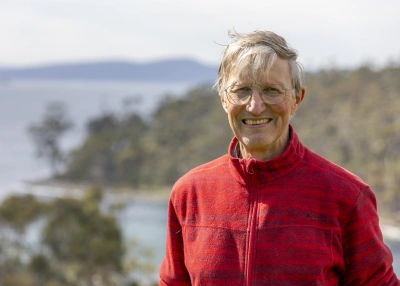
Simon Allston
Friends of North Bruny
So for instance, if there's a development proposed for the area we want to be heard about that. If some sort of action is to be taken which might damage the local environment, we want to be heard. But then if the road is in poor condition, we'll talk to the government about getting it better maintained. Those sorts of things.
Increasingly, it seems to me we're getting involved in whole-of-island environmental issues. We're very much a partner with the Bruny Island Environment Network (BIEN). They're very active and they have a really interesting and broad agenda, but we like to join with them in various things. There's a lot of communication happening there and I hope it increases.

We also keep in communication with the Bruny Island Community Association, which has less of an environmental focus than those two other groups.
We have a very large membership now, over 100 members. That's great for an area that isn't very well populated. The group gets quite a lot done. There's also Landcare group, which is now being built up and is going to be quite active.
It's an extraordinary community. There are so many really talented people who either live here or have a shack here. I don't know quite why it is, but it's people from all from all walks of life.
We even have a resident last time I heard, who is Vice-Chair of the International Whaling Commission. They live on North Bruny. We have a person who has headed up the state library service, a person who has been a major entrepreneur in town all sorts of things like that. A lot of skills come to bear on what we do. There are a lot of small projects, but I think the main thrust of what the group wants to do is protect the island.

We're quite worried about the tourist numbers, the short-term visitation and the pressure that puts on the island. We'll want to have voice with that sort of thing. I think we'll increasingly work on biodiversity issues, but particularly in partnership with the other groups. And the local Landcare issues as well, all at the same time as trying to make sure that the infrastructure around us is working properly. I think those are going to be the main things.
For instance, with our farm, we are temporary dwellers here in the scheme of things, but we have an obligation to try and make sure that when we leave here, it's in good shape and it's better than it was when we arrived. I think most people here would feel that about their bit of the island.
Most of it happens behind the scenes, and people don't shout out their accomplishments very much. But the high levels of tourism wouldn't be achievable without people here, who consistently provide services or even just make sure that the place isn't a mess. I think it is really important that people have a sense of place, a sense of being where they are and having a responsibility for it for the long-term.
A large part of North Bruny is only in a small number of hands. Murrayfield Station, the property which is owned by the weetapoona Aboriginal Corporation, must occupy something like two thirds of North Bruny. So that's one area that's well looked after.
There are a couple of other larger properties, all in good shape. Then, there's a lot of smaller holdings where people are looking after their own small patch as well as contributing to the local community.

Love what you're reading? Support Friends of North Bruny donate to support them now
Donate hereYou might like...

Bruny Island launch: James Bunker on the Bruny Island Environment Network

Watch: behind the scenes at the Bruny Island Bird Festival

A thriving island arts community

Bruny Island launch: Dr Tonia Cochran on its global significance
Newsletter
Sign up to keep in touch with articles, updates, events or news from Kuno, your platform for nature
